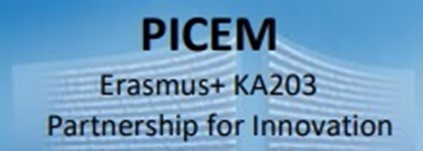KA203 – Partnership for Innovation of Exact Supporting Courses in Economics and Management Study Programmes

| Project title: | Partnership for Innovation of Exact Supporting Courses in Economics
and Management Study Programmes |
| Project number: | 2020-1-CZ01-KA203-078472 |
| Project period: | 1st December 2020 – 30th November 2023 |
| Funded by: | Czech National Agency for International Education |
| Program: | Erasmus+, KA203 |
| Project partners: | University of Leon, Spain, Inicio | Universidad de León (unileon.es) University of Gdansk, Poland, Home | University of Gdańsk (ug.edu.pl) University of Huddersfield, United Kingdom, https://hud.ac.uk/ |
| Coordinator: | Tomas Bata University in Zlín, Czech Republic |
Summary:
Students of economics, management and related study programmes have difficulty acquiring the knowledge and skills to support their learning in specialist courses/modules such as mathematics, statistics, quantitative methods for decision-making and econometrics. They use these tools and methodologies very rarely in an active or passive form during their study time but they require these skills when working on their seminar projects, bachelor theses, diploma theses or dissertations. They also need them later on- in their professional lives. The aim of the project is to develop innovative pedagogical approaches and a new learning environment in the form of study materials, open educational sources, teaching methods and software to assist the teaching of these courses/subjects by sharing experiences between the partner institutions involved in the project, using analyses of the situation in the partner countries, and elsewhere in Europe and worldwide. The target groups are Economics, Management and similar study Programmes at the Bachelor (Mathematics, Statistics) level, Master and Doctoral level studies (Quantitative methods and Econometrics), in both full time or part-time mode, and participants in life-long learning programmes. Since the innovated learning materials will be developed in the English language, for partners from non-English speaking countries the target group of students will be formed from overseas students in short-time mobility programmes, such as Erasmus+ KA1, and from students of compact study programmes. The learning experience from the knowledge already gained in the Czech co-ordinating institution and the other partner countries (thanks to the frequent contacts with colleagues from Economics, Mathematics and Commerce Faculties) and in Europe (via the membership in the NICE Network, long-term engagement on e-Learning introduction and participation in international conventions) has led to a strong aspiration to innovate at a European level. The experience of the partner universities in the consortium and the synergies between them are the vehicles for the delivery of such an outcome.
Outcomes:
During the project and on its completion, the following outcomes are expected:
- A detailed analysis of the pedagogical approaches used in “quantitative” courses/modules in partner universities/countries and in other European countries (reports);
- Conference/seminar proceedings arising from the project activities;
- A manual for innovation in pedagogical approaches and in study environments in the partner institutions/countries;
- Outputs of the innovation: study texts, PPT presentations, open educational sources, recommended methods of instruction and recommended software products;
- Dissemination of the project outcomes via contributions to non-project conferences.
Impact:
A significant impact of the project will be the support of the target groups of the project – i.e. the lecturers who teach the subjects innovated in this project and the students who graduate from Economics and Management programmes which include studies of the innovated quantitative subjects. This will also make an important contribution to graduate employment because the knowledge and skills associated with the innovated subjects are often a prerequisite for professional employment and career development.
Budget: 315 960 Eur